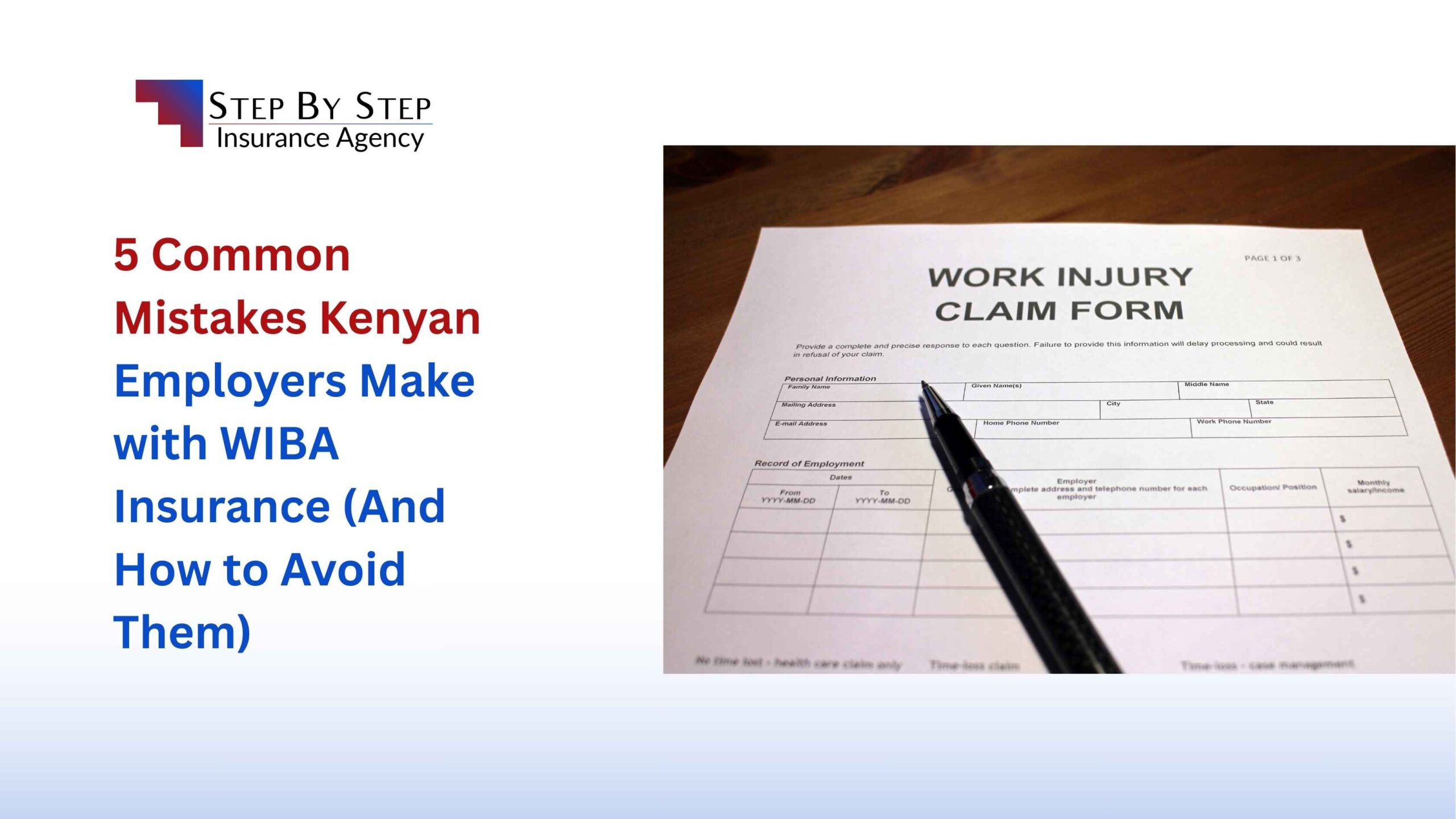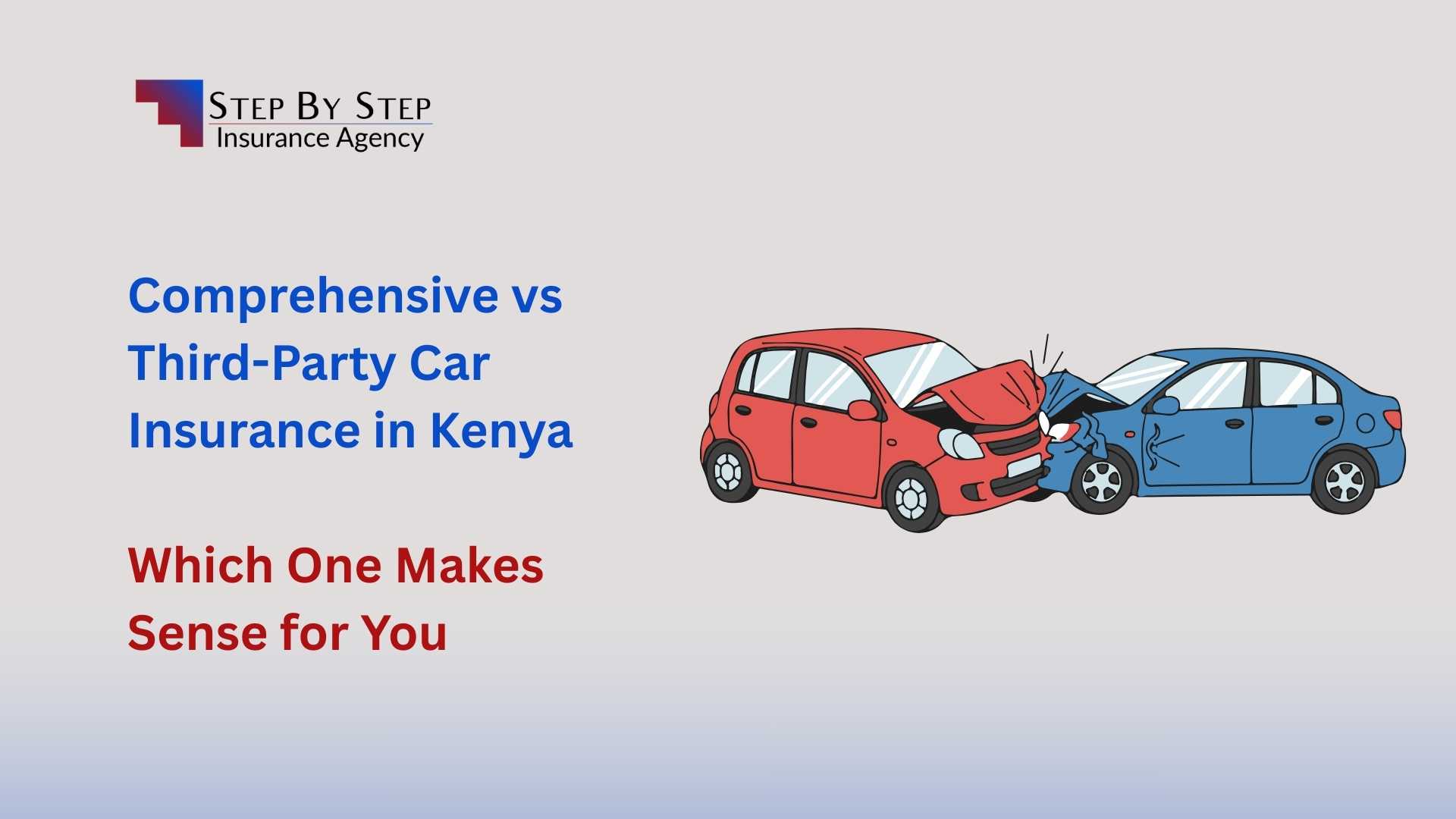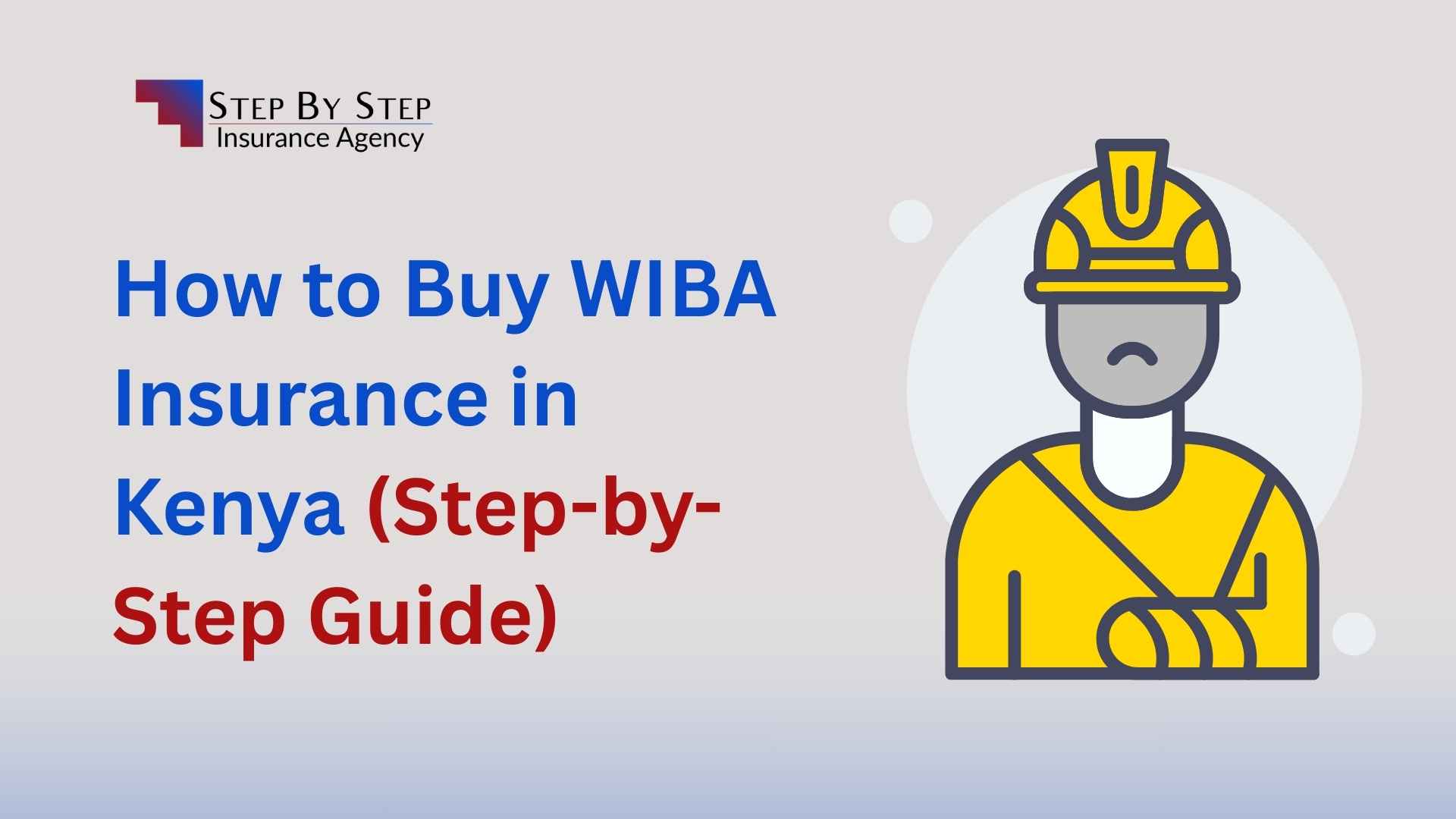5 Common Mistakes Kenyan Employers Make with WIBA Insurance (And How to Avoid Them)
In Kenya, the Work Injury Benefits Act (WIBA) of 2007 requires every employer to provide compensation to employees who suffer injuries, diseases, or even death while in the course of their employment. To comply with this law and protect workers, employers are expected to take out WIBA Insurance.
However, many companies either treat WIBA cover as just a box-ticking exercise or fail to understand what it really covers — leaving themselves exposed to legal penalties and hefty financial losses when accidents happen.
Here are the 5 most common mistakes Kenyan employers make with WIBA Insurance — and how to avoid them.
🎯Key Takeaways
- WIBA insurance is a legal requirement under Kenyan law, not optional
- Accurate employee reporting is crucial for proper claims settlement
- WIBA covers more than just workplace accidents – including occupational diseases
- Prompt reporting of incidents is essential to avoid claim invalidation
- WIBA should be complemented with additional coverage for comprehensive protection
📋Table of Contents
💬Join Our Insurance Community
Connect with fellow business owners and stay updated on the latest insurance trends, WIBA updates, and compliance tips. Get expert advice and share experiences with our community of insurance-conscious employers.
| 🔗Related WIBA Resources | Description |
|---|---|
| WIBA Premium Calculations | Learn how WIBA insurance premiums are calculated in Kenya |
| APA WIBA Insurance Guide | Comprehensive guide to protecting employees with workman’s compensation |
| Cost of Ignoring WIBA | Understand the real financial impact of not having WIBA insurance |
❌1. Failing to Take WIBA Insurance Altogether
Believe it or not, some employers in Kenya still operate without WIBA insurance. They assume that because accidents are rare in their sector, the cover isn’t necessary. Others confuse it with Group Personal Accident (GPA) insurance, assuming the two are interchangeable.
Why this is a mistake:
- WIBA is a legal requirement under Kenyan law. Failure to provide it can lead to fines, lawsuits, or even closure of your business.
- GPA is optional and offers different benefits. Only WIBA ensures full compliance.
How to avoid it:
- Work with a licensed intermediary like Step by Step Insurance to ensure you purchase a compliant WIBA policy that matches your workforce needs.
❌2. Underreporting the Number of Employees or Salaries
Some employers under-declare the number of staff or report lower salaries when taking WIBA to reduce premiums.
Why this is a mistake:
- Compensation under WIBA is based on an employee’s salary. If you under-declare, your employees (or their families) could receive less compensation than they deserve.
- Worse, insurers may reject claims if they find inconsistencies in declarations.
How to avoid it:
- Always provide accurate employee records, including updated payroll details. This ensures claims are settled fairly and quickly.
❌3. Not Understanding What WIBA Actually Covers
Many employers believe WIBA only covers injuries that occur in the workplace. The truth is broader.
What WIBA Covers:
- Work-related accidents (falls, machinery injuries, etc.)
- Occupational diseases (caused by exposure at work)
- Death while on duty
- Permanent or temporary disability due to work injuries
- Medical expenses related to workplace accidents
Why this is a mistake:
Without understanding the scope, some employers fail to guide employees correctly — leading to confusion, mistrust, and disputes during claims.
How to avoid it:
- Request a clear explanation of policy terms from your insurer or intermediary. At Step by Step Insurance, we simplify WIBA policies for HR teams and managers so you know exactly what’s covered.
❌4. Delaying or Ignoring Claims Reporting
Accidents should be reported to insurers and the Directorate of Occupational Safety and Health Services (DOSHS) promptly. Unfortunately, many employers delay claims — sometimes to “protect the company’s image.”
Why this is a mistake:
- Delays can invalidate claims, leaving the employer to shoulder the financial burden.
- Employees may lose trust and even sue the employer.
How to avoid it:
- Establish a clear internal policy: report all work-related accidents to your insurer within 24–48 hours and file the required DOSHS reports.
❌5. Treating WIBA as a Standalone Solution
Some employers assume that once they’ve purchased WIBA, they don’t need any other cover.
Why this is a mistake:
- WIBA strictly covers work-related accidents and diseases.
- It does not cover accidents outside work hours (e.g., weekends, commuting, or off-duty activities).
- It also doesn’t cover life-threatening illnesses unrelated to the workplace.
How to avoid it:
- Pair WIBA with Group Personal Accident (GPA) or Group Life Insurance to provide well-rounded protection for employees.
🏢Why Step by Step Insurance?
Navigating WIBA requirements can be tricky. At Step by Step Insurance, we specialize in helping employers across Kenya:
- Stay compliant with the Work Injury Benefits Act
- Find affordable WIBA packages tailored to their workforce
- Simplify claims processing and documentation
- Bundle WIBA with GPA or Group Life cover for comprehensive protection
💬“Too often, employers come to us after facing penalties or disputes that could have been avoided with the right WIBA cover. Our mission is to help you get it right the first time.” — Faith Kimaru, Principal Officer, Step by Step Insurance
✨Final Word
WIBA insurance isn’t just about compliance — it’s about protecting your people and your business. Avoiding these five common mistakes ensures that your employees are taken care of and that your company avoids unnecessary financial and legal risks.






